Articles
- Page Path
- HOME > J Korean Acad Nurs > Volume 13(1); 1983 > Article
-
Original Article
- An Analysis οι the Relationship between Family Incongruence about Family Environment and Occurrence of Juvenile Delinquency
- So Ya-Ja Kim, Mee-Hee Hwang
-
The Journal of Nurses Academic Society 1983;13(1):34-41.
DOI: https://doi.org/10.4040/jnas.1983.13.1.34
Published online: December 18, 1983
1College of Nursing, Yonsei University
2College of Nursing, Yonsei University
1College of Nursing, Yonsei University
2College of Nursing, Yonsei University
Copyright © 1983 Korean Society of Nursing Science
This is an Open Access article distributed under the terms of the Creative Commons Attribution Non-Commercial License (http://creativecommons.org/licenses/by-nc/3.0) which permits unrestricted non-commercial use, distribution, and reproduction in any medium, provided the original work is properly cited.
- 388 Views
- 0 Download
Abstract
-
- This study was concerned with the investigation of the relationship between the degree of family incongruence about family environment and the occurrence of juvenile delinquency using Family Environmental Scale(F.E.S) designed by Rudolf Moos.
- The ®tudy employed the control group design using the interview and questionnaire through home visiting. The control group sample consisted of 44 families from a middle socioeconomic S Dong co mmunity setting and the experimental group sample consisted of 30 families of juve nile from Juvenile Training School in Seoul.
- Total sample siac waa 321.
- Data for this study was collected over a period of three months from the end of Nov. 1982 to the beginning of Feb. 1983» after pretest.
- To aiialize the data, t-test was used.
- The insult of this study was as follows;
- 1. The experimental groups∗ incongruence score was 18· 8598 as compared to the control groups score of 14.8598. The differences were statistically significant at . 001 level, and th㨸 hyjjothesis was supported.
- 2. The experimental group had higher incongruence scores as compared to the control group of three dimensions, the differences were statistically significant at . 05 level.
- The Experimental group had higher incongruence scores than the control group on 6 subscales, namely, cohesion, expressiveness, conflict, achievement orientation, moral-religious emphasis and organization. The differences were statistically significant at. 05 level.
Figure & Data
REFERENCES
Citations
Citations to this article as recorded by 

An Analysis οι the Relationship between Family Incongruence about Family Environment and Occurrence of Juvenile Delinquency
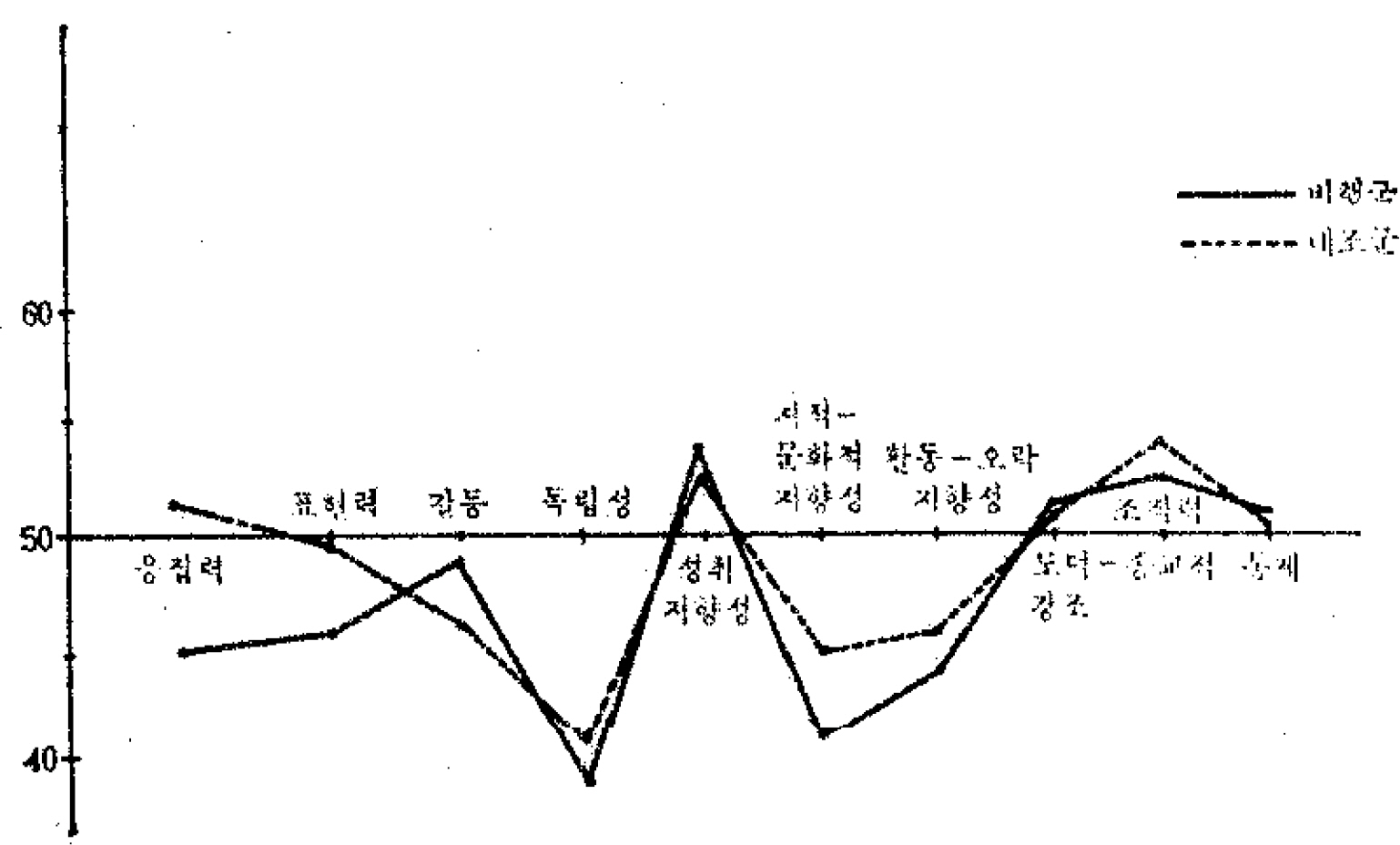
>⮤ 1〉䆼⩷劐匄 䴀㞐劐㢨
>⮤
An Analysis οι the Relationship between Family Incongruence about Family Environment and Occurrence of Juvenile Delinquency
 KSNS
KSNS
 E-SUBMISSION
E-SUBMISSION


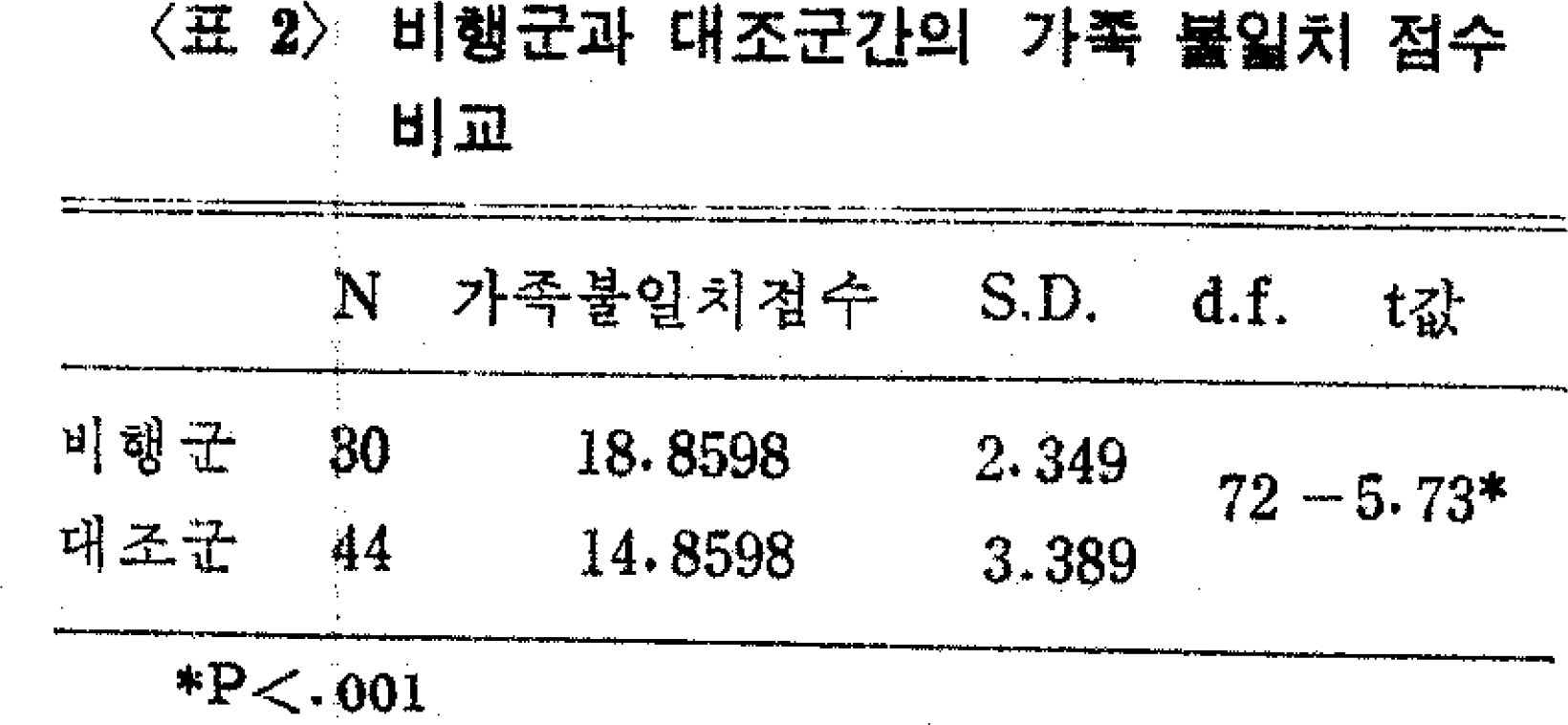
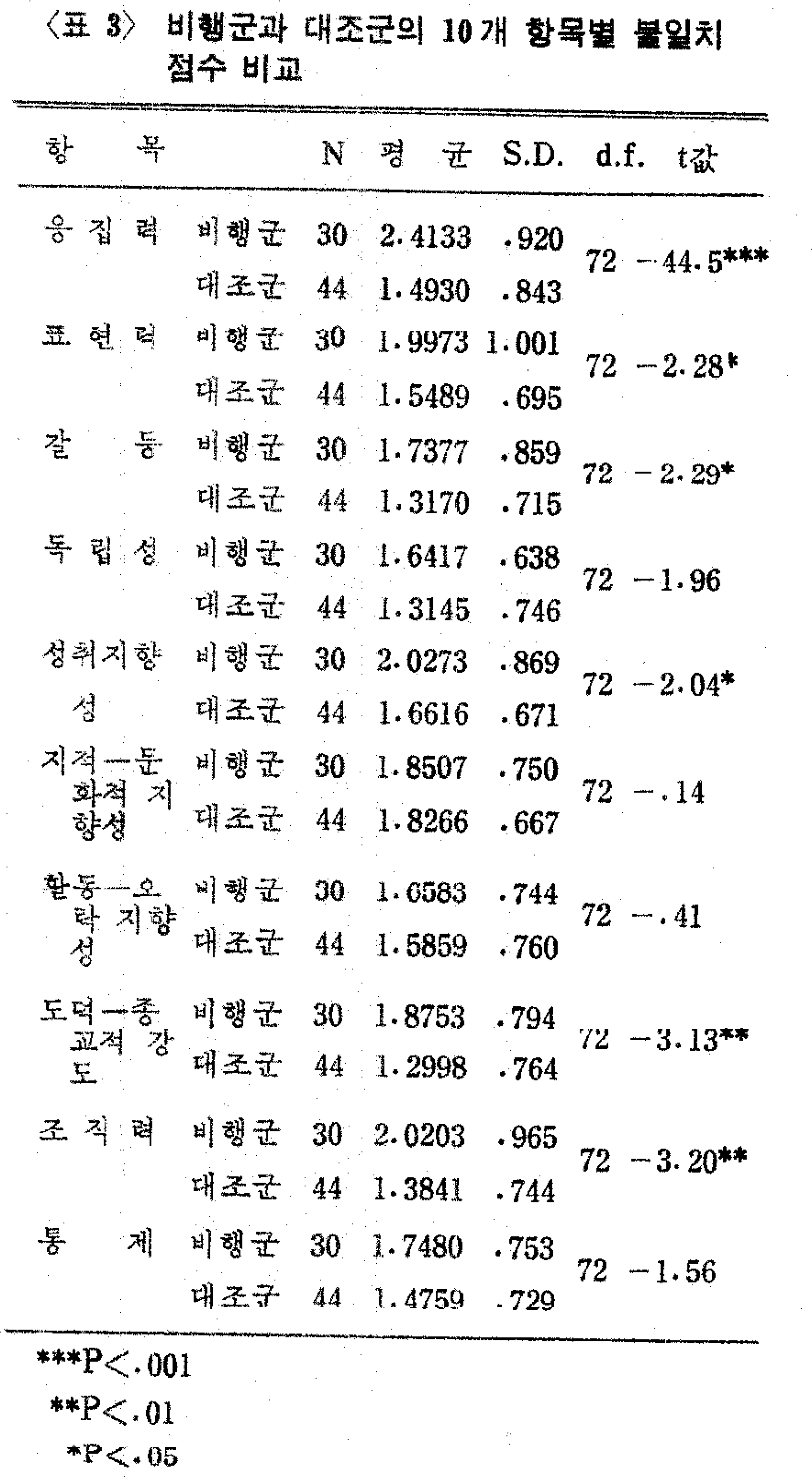
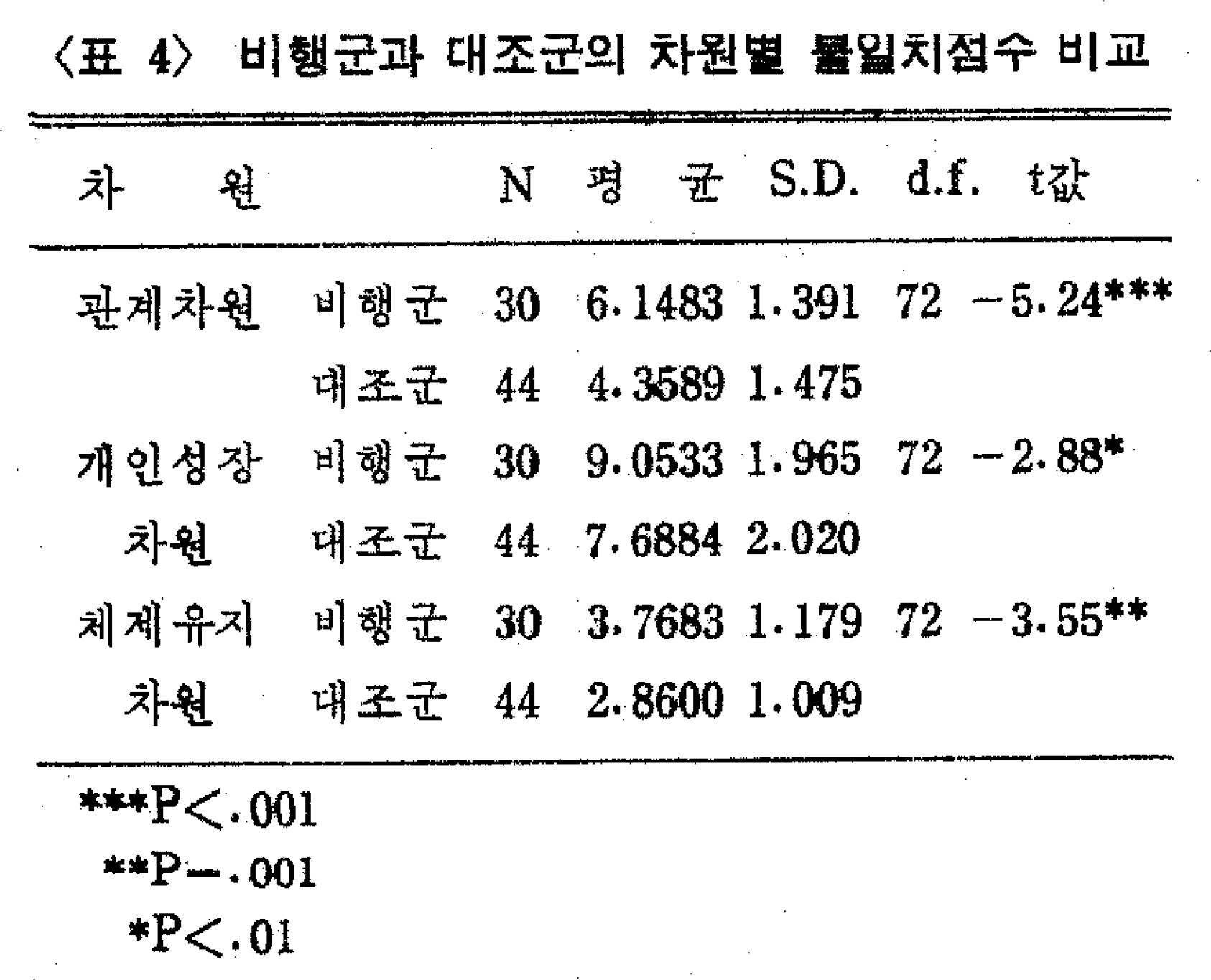
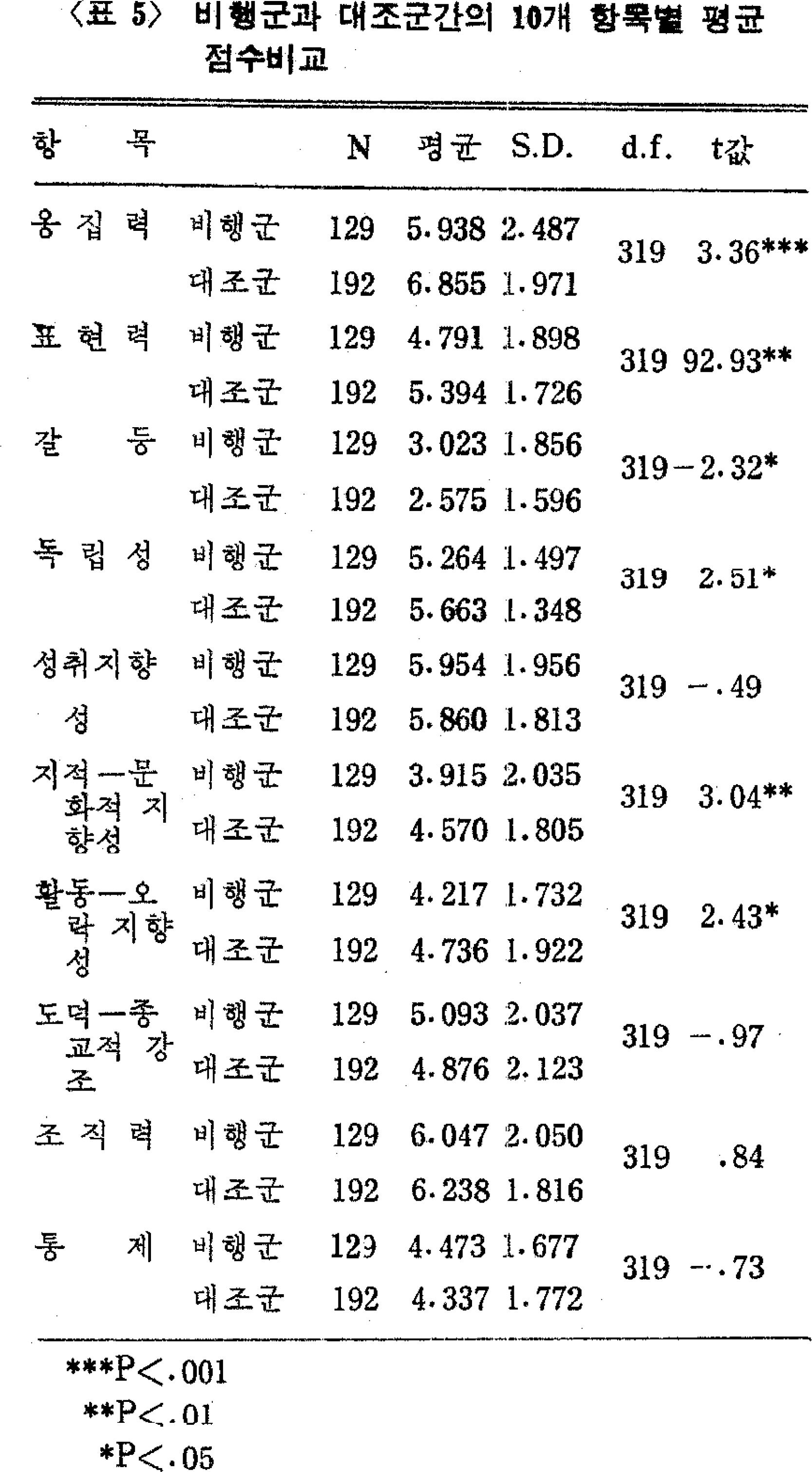
 Cite
Cite

